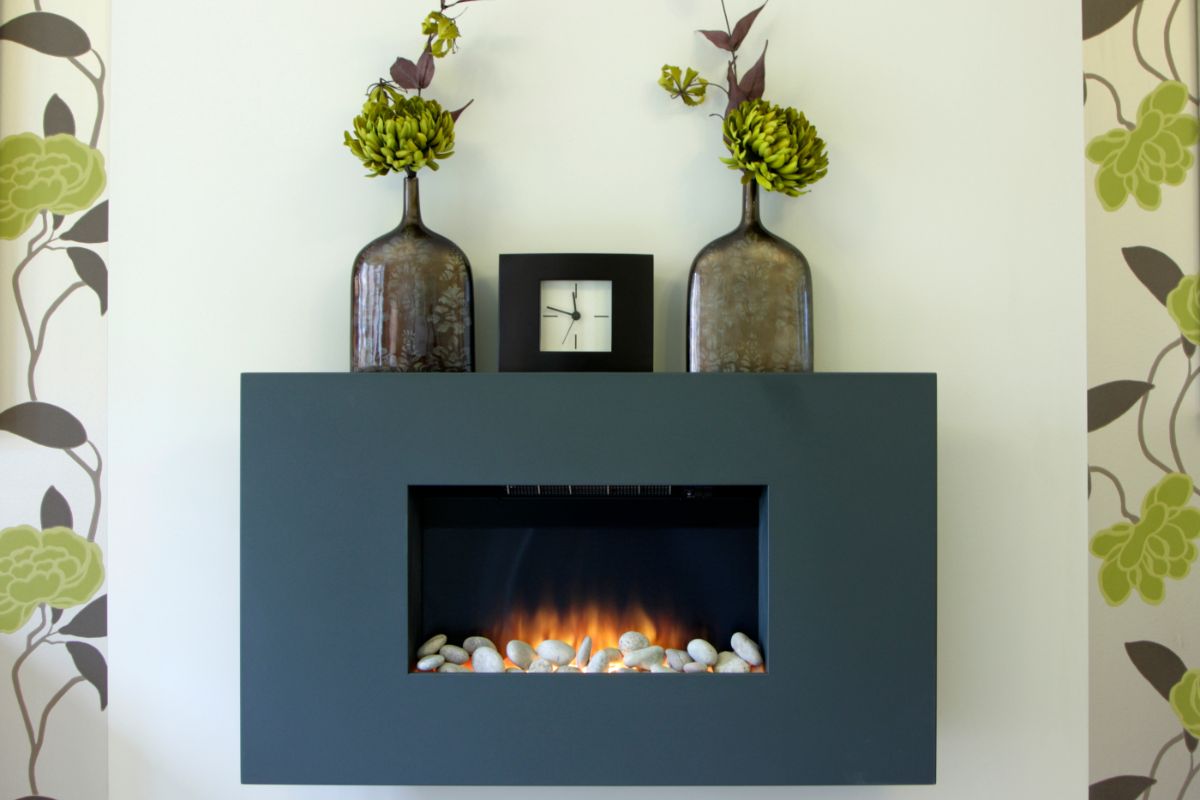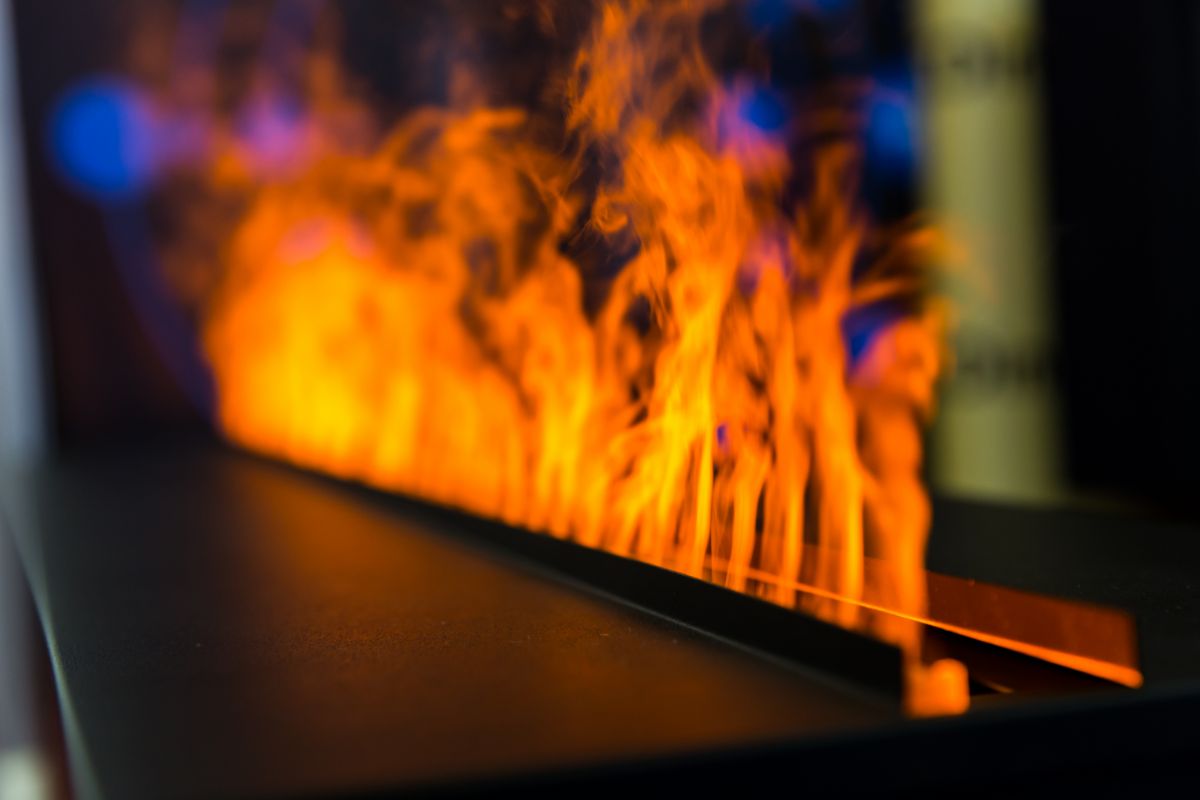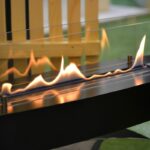Do you find yourself standing in front of your gas fireplace, a twinge of curiosity nibbling at your thoughts, wondering about its fuel consumption?
Or perhaps you’re on the cusp of inviting the warmth of a gas fireplace into your home, but the mystery of its gas usage is holding you back?
Jump into the heart of the matter with us – you’ve landed in just the right place!

In the realm of gas fireplaces, a typical unit devours around 1 therm of gas every two and a half hours per 40,000 BTU.
But as with any beast, the appetite varies. Factors such as fuel type, fireplace efficiency, and the presence or absence of venting play crucial roles in determining gas consumption.
Don’t fret if this seems overwhelming; we’ve got you covered! We’re about to delve deep into these influential variables, arming you with all you need to comprehend your gas fireplace’s fuel consumption fully.
So, brace yourself for a fascinating exploration of the world of gas fireplaces. Let’s ignite the spark of knowledge now!
How Much Gas Does A Gas Fireplace Use?
It is hard to give an exact number, as each gas fireplace will have a slightly different usage. But that doesn’t mean you can’t use the general guidelines or work out how much gas your fireplace will use.
On average, a 40,000 BTU gas fireplace will use 1 therm of natural gas, or 100 cubic feet, every two and a half hours. But it’s not just natural gas you can use!
You can also use propane to fuel your gas fireplace. When you use propane, you will need one gallon for the same fireplace every two hours.
If your fireplace has a higher BTU rating, then you will need more gas. For lower BTU ratings, you will need less gas. The BTU rating can be found on your fireplace, or it will be in the user manual.
If you are looking to purchase a fireplace, the BTU rating is usually found in the product description, allowing you to see how powerful the fireplace is before making your purchase.
Factors That Impact Gas Fireplace Usage

We touched on this earlier, but several factors impact how much gas your gas fireplace will use. Let’s take a look at these factors in closer detail to help you learn more about them and work out accurately how much gas your fireplace will use.
Type Of Fireplace
First, you need to consider the type of fireplace you have. We can categorize these into natural vents, ventless, or direct vents.
Ventless or flueless gas fires don’t require a chimney and can be installed as inserts or wall-mounted fireplaces. As these don’t need a chimney, all of the heat they produce stays in the room, making them 100% efficient!
The same can’t be said for direct-vented or natural-vented gas fireplaces. They will both lose some of the heat they produce as it escapes into the chimney.
Providing your chimney has no leaks, this shouldn’t be too much of an issue, but it is a factor worth considering.
As some of the heat from the fireplace will be lost in the chimney, you will need to use more gas to heat your room, costing you more in the long run.
Fuel Type
You also need to consider the type of fuel that you use. Gas fireplaces can operate on both natural gas and propane. It is recommended that you only use propane when natural gas is not available and stick to natural gas as much as possible.
Propane does tend to cost more, meaning it is more expensive to run your gas fireplace with propane than natural gas. Of course, the price does vary depending on how much you are using and how efficient your fireplace is.
Pilot Light Type
Gas fireplaces are fitted with one of two different types of pilot lights, a standing pilot or intermittent pilot light.
A standing pilot light is typically used on older fireplace models, where the pilot light remains on constantly, burning a small amount of fuel 24/7. These are typically used on older models that don’t come with an electrical connection.
Newer gas fireplaces come with an intermittent pilot ignition, or IPI. These fireplaces connect to your house’s electricity supply with an electrical plug outlet. This means the pilot light is started when needed, saving a slight amount of gas.
Efficiency
You also need to consider the efficiency of your gas fireplace. More efficient gas fireplaces will waste less gas, meaning you use less gas, making the fireplace cheaper.
You can have your gas fireplace serviced regularly to ensure it stays as efficient as possible. We recommend doing this yearly to keep your fireplace running smoothly and to address any issues as soon as they appear.
Maximum Heat Output
You also need to consider the available maximum heat output. The hotter your fireplace can be, the more gas is needed to reach the temperature, meaning you might use more than the average.
Likewise, if you run the fireplace at the hottest temperature possible constantly, you will burn more gas than if you were using a lower temperature. Eco settings are good for keeping your room warm without using too much gas.
How Much Does It Cost To Run A Gas Fireplace?
The cost varies depending on how often you use your gas fireplace, how often it is turned on, and how much you pay for gas. Generally, you can expect to pay around 5p per KW for your gas fireplace.
If your fireplace only comes with a BTU rating, you can use a converter to see what the equivalent will be.
By comparison, gas fireplaces are cheaper to run than electric fireplaces, but again this depends on how much you pay for your energy.
Final Thoughts
And there you have it, a gas fireplace uses 1 therm of gas for every two and a half hours it is on.
Remember, this is an average. You might use more or less gas depending on the factors we covered earlier, so consider these before working out how much gas your fireplace uses!
Frequently Asked Questions
What Role Does Fireplace Efficiency Play in Gas Usage?
Fireplace efficiency directly affects gas usage. More efficient fireplaces generate more heat per unit of gas consumed, making them more fuel-efficient and economical in the long run.
Does Venting Affect the Amount of Gas Used by a Fireplace?
Yes, venting can affect gas usage. Ventless gas fireplaces are generally more efficient as they lose less heat and consume less gas than vented fireplaces.
How Does Fuel Type Impact Gas Fireplace Consumption?
The type of fuel used in a gas fireplace can significantly impact its gas consumption. Natural gas fireplaces tend to use less fuel than propane ones due to differences in energy content.
How Can I Estimate My Gas Fireplace’s Gas Consumption?
To estimate your gas fireplace’s consumption, you’ll need to know the fireplace’s BTU rating and the cost of gas per therm. Typically, a fireplace uses 1 therm every 2.5 hours per 40,000 BTU. Multiplying the BTU rating by the cost per therm gives the estimated gas consumption cost.
- How To Open Chimney Flue - July 20, 2023
- Do Electric Fireplaces Use A Lot Of Electricity? - July 20, 2023
- How To Keep A Fire Going - July 20, 2023








